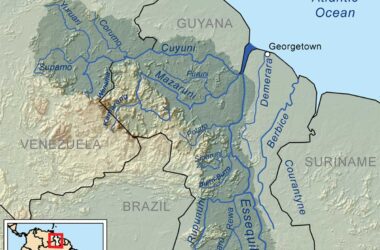IN this column last week, we outlined the reason why the United Kingdom (UK) suspended its visa-free waiver agreement with our sister country, Dominica and cautioned against ‘selling our passports’ to citizens outside our region. We highlighted reasons for the caution, one reason being that there will be persons who will want our passport so as to circumvent sanctions and restrictions placed against their country of origin.
We made the point that Saint Lucians stood more to lose than gain if Europe, the United States and other powerful countries consider that our Citizenship by Investment programme (CIP) is a threat to them, meaning that by virtue of owning one of our passports, the national of a country deemed non grata by Europe could enter its borders.
There is no doubt that the survival of the CIP in the independent states of the Organizational of Eastern Caribbean States (OECS) is under threat. But that is not the only thing under threat: the strength of our passport is under threat, meaning that Saint Lucians stand to lose visa-free access to the 26 Schengen Area countries in Europe.
Less than three weeks ago the Henley Passport Index, which ranks all the world’s passports according to the number of destinations their holders can access without a prior visa, ranked Saint Lucia passport seventh in its list of the 10 most powerful passports in the Caribbean and 30th globally. To better understand the strength of the Saint Lucian passport, a holder gets visa-free access to 146 worldwide destinations.
Should Europe and other powerful countries decide that our CIP is a threat to them and withdraw visa-free access to us, then poof, there goes our ability to access 146 countries.
Should this happen, this would be a major blow to Saint Lucia and its passport would lose a significant part of its revenue earning potential.
We do know that the UK government will be examining all the CIP’s in the English-speaking Caribbean, to determine if they undermine the UK’s national security.
We also know that the English-speaking Caribbean with CIP’s are now scrambling to bring their CIP’s up to a standard that reflects the manner and ways in which the UK, Europe and other powerful countries want these programmes managed.
The English-speaking countries with CIP’s are presently busy making changes to their schemes to assure the UK, Europe and the United States that vagabonds and scoundrels will not use their CIP’s as a backdoor to enter the UK and Europe and United States borders.
An editorial in an online publication puts it this way: “Besides the reputational danger and financial dependence that nations risk when embarking upon Citizenship by Investment programmes, there is something philosophically wrong with putting a nation’s passport up for sale. Such programmes rubbish the concept of solidarity, shared heritage, experiences, aspirations and responsibility that usually accompany citizenship.”
The online publication further stated that “The Citizenship by Investment programmes run by some OECS countries also create a moral dilemma for other CARICOM countries that do not have such programmes. Does everyone holding a CARICOM passport deserve all the rights and privileges afforded by the Treaty of Chaguaramas or The Revised Treaty of Basseterre (for OECS countries), regardless of how they got the passport? What about voting rights or access to land purchases without the scrutiny and cost of an alien land holding licence?”
While Saint Lucia has said in the past that its CIP is not the primary liquidity that will drive growth, but a catalyst for sustainable economic growth, there is no denying that the CIP has played a part (significantly?) in Saint Lucia’s survival in the global climate of economic uncertainties.
While this is all well and good, it is also clear that the programme is not sustainable and poses a greater risk to the island and its citizens, as earlier explained. Why put the Saint Lucia passport at risk of losing its current status for a programme that is not Saint Lucia’s primary engine of growth?





